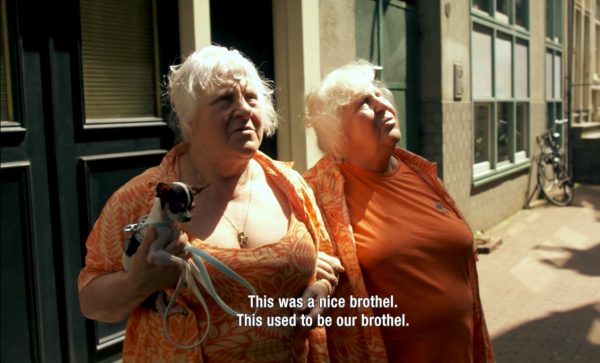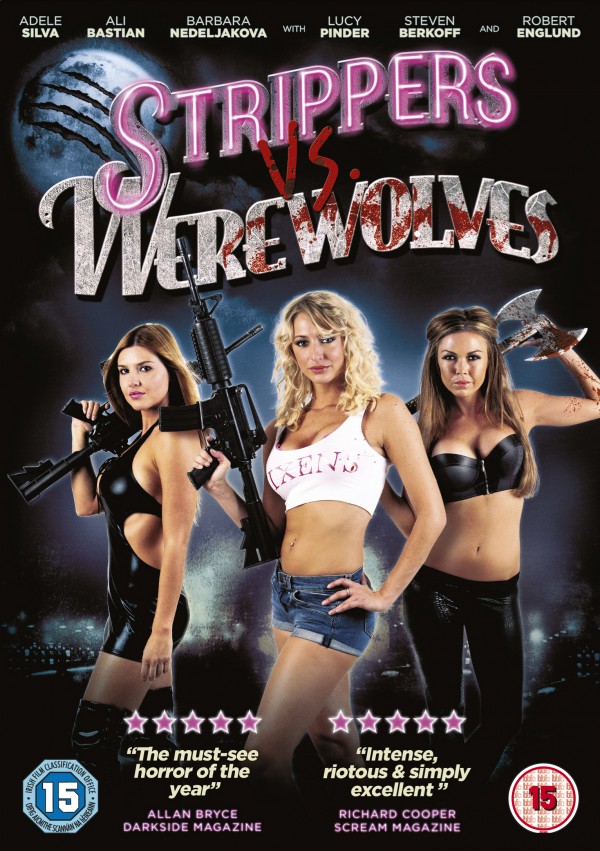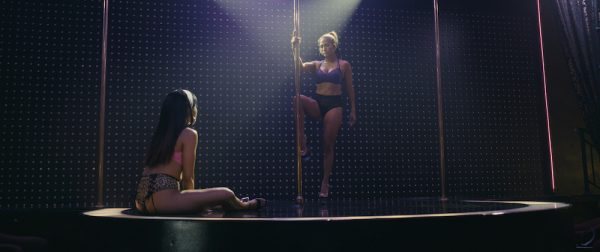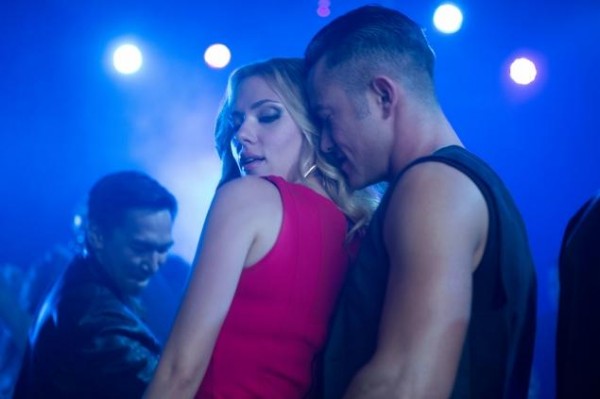Meet The Fokkens (2011)

Meet the Fokkens, a 2011 documentary directed by Gabriëlle Provaas and Rob Schröde, follows the lives of Martine and Louise Fokkens, 69-year-old twins who have spent many years as full service sex workers in Amsterdam’s red light district. At the time of filming, Martine was still working, albeit reluctantly, while Louise had been retired for two years because of her arthritis. Though the documentary’s main focus is the sisters’ careers as prostitutes, we also see their homes, meet their friends, and hear pieces of their personal histories.
In addition to its focus on a fascinating topic, Meet the Fokkens also presents a charming aesthetic experience. The movie involves many scenes of the Fokkens sisters in matching outfits, and at least one of those outfits is primarily pink! Louise brings her Chihuahua with her everywhere she goes. Even if nothing else in this movie caught my attention—which is not the case—the matching outfits and Chihuahua would have been enough to enchant me. But, happily, Meet the Fokkens is as intellectually engaging as it is, well, precious. The film does more than skim the surface—it delves into sexuality and labor through the exploration of the lives of these two women.


